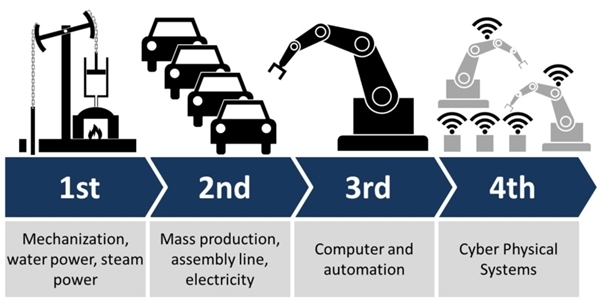What exactly are the industrial revolutions?
Industrial revolutions are those eras in the modern human history that brought a radical shift in the social and economic status of people impelled by technological innovations. From the late 1700s till date, we’ve seen the three major industrial revolutions, and the fourth industrial revolution is the one of the current era.

The First industrial revolution took place between the late 1700s and early 1800s with an appearance of the mechanized textile manufacturing and steam locomotive. In simple words, it used water and steam power to mechanize production.
The Second industrial revolution started between 1820 and 1870 was possible and achievable by rapid mechanization, industrialization, and the invention of the assembly lines. Furthermore, this revolution used electric power to create mass production.
The Third industrial revolution took place in 1969. This industrial revolution started off with the entry of computers and electronics. It used information technology and electronics to automate production.
What is the 4th industrial revolution and what makes it special?
The Fourth industrial revolution, often known as 4IR or Industry 4.0 is the revolution of the current era unfolding before our eyes, which is happening with the amalgamation of digital, biological, and physical paradigms, impacting various industries and economies.
Comments
Post a Comment